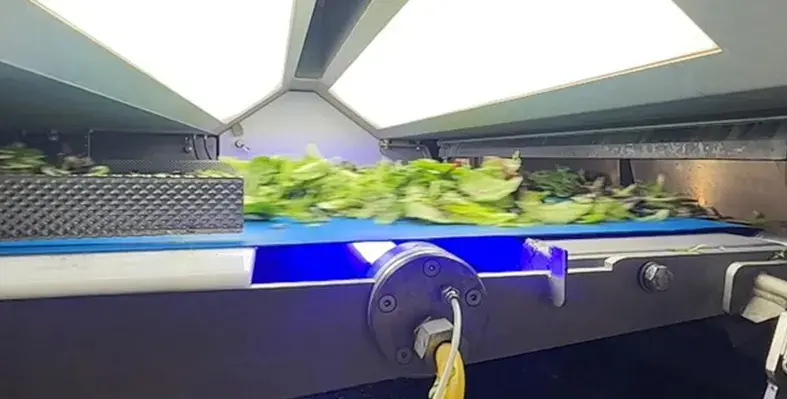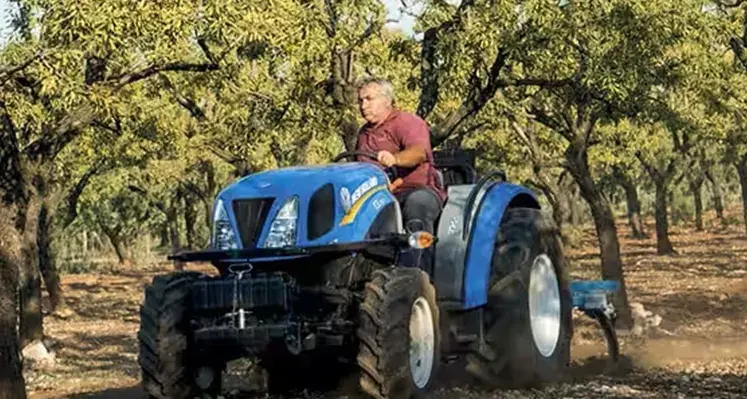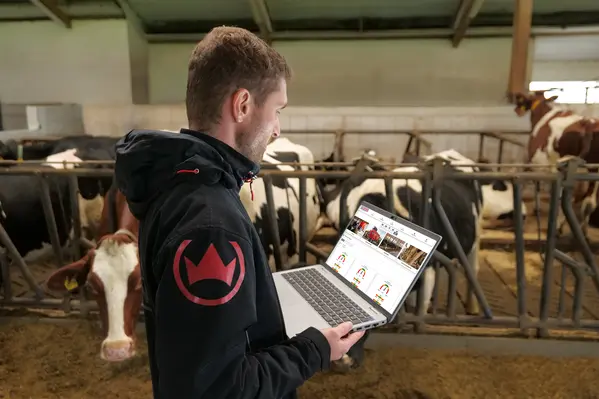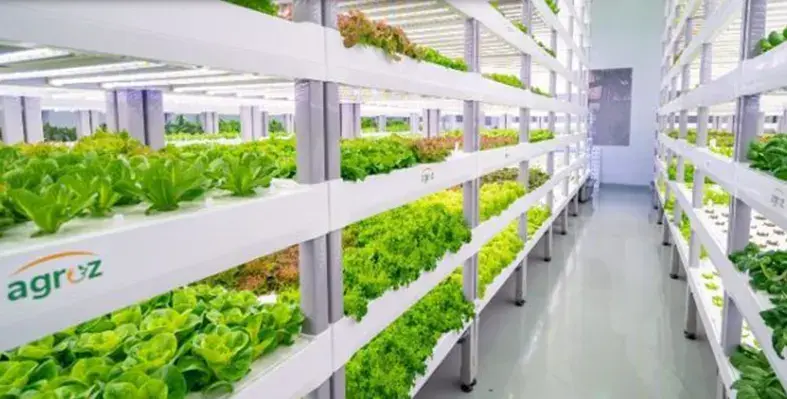
COMPASS accurately detects and removes a wide range of foreign materials, including dirt clods, rocks, sticks, insects and animal parts.(Image credit: Key Technology)
Key Technology (Key), a member of Duravant’s Food Sorting and Handling Group, has introduced its COMPASS optical sorter, a next-generation solution designed specifically for fresh-cut leafy greens processing.
Engineered to inspect product directly from the field, this belt-fed optical sorting system combines high-precision foreign material (FM) detection with gentle, hygienic handling to support food safety and operational efficiency.
Designed for early-stage processing, COMPASS helps processors address one of the most critical challenges in leafy greens operations foreign material contamination while maintaining simplicity and cost-effectiveness. As Jack Lee, Duravant Group President of Food Sorting and Handling, said,“Foreign material is one of the biggest challenges at this early stage of leafy greens processing, but many processors can’t justify the expense or complexity of traditional optical sorting systems. COMPASS changes that,” he said. “It delivers accurate and reliable FM removal in a user-friendly, cost-effective solution engineered to withstand the dirt and debris common at the front end of leafy greens lines.”
Ideal for spinach, arugula, salad mixes and other unwashed leafy greens, COMPASS accurately detects and removes a wide range of foreign materials, including dirt clods, rocks, sticks, insects and animal parts. When processing single varieties, it can also identify and reject product defects, enhancing overall product quality.
To reduce labour dependency and simplify training, COMPASS features a recipe-driven system with a touchscreen interface designed to mirror smartphone navigation. Operators can learn to run the sorter in under 30 minutes, quickly switch between products and create new recipes with ease. Intelligent belt control ensures precise tracking, reducing downtime and eliminating manual adjustments.
COMPASS offers flexible camera configurations with up to eight channels of multispectral sensor data, delivering advanced detection at a lower total cost of ownership. When equipped with Key’s Pixel Fusion technology, the sorter combines visible, infrared and shortwave infrared data to improve contrast and identify even hard-to-detect contaminants. An optional chlorophyll-sensitive channel further enhances detection accuracy.
The system is designed for optimal product flow, using specialised infeed conveying and optional air-assist features to prevent clumping and sticking. Sanitation is prioritised through an open-frame design, sloped surfaces and a clean-in-place system that supports fast, effective washdowns.
Each COMPASS sorter includes Key Discovery, transforming the machine into an IIoT-enabled data hub that provides real-time performance insights and quality analytics helping processors maximise uptime, safety and return on investment.







